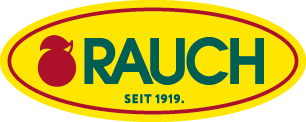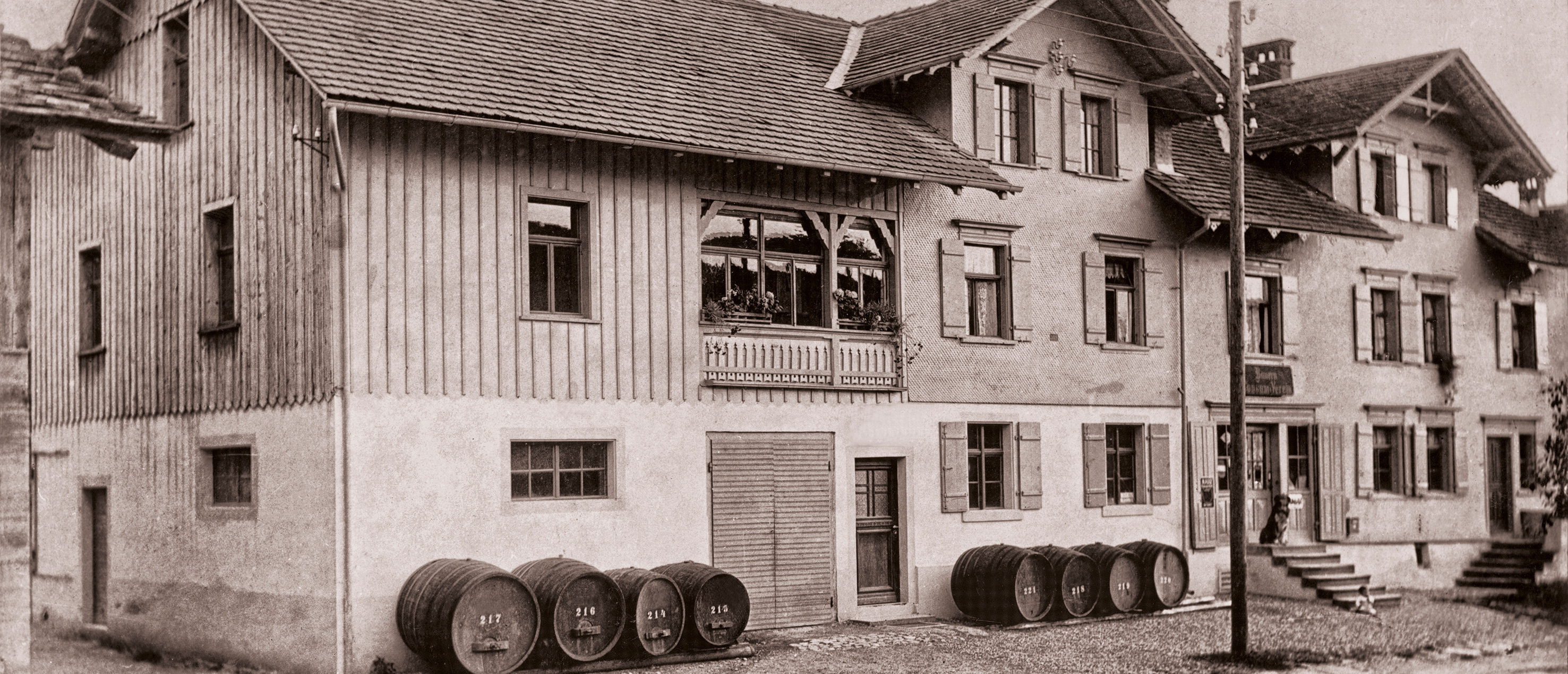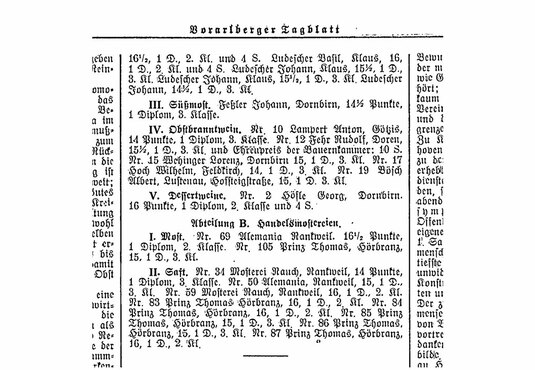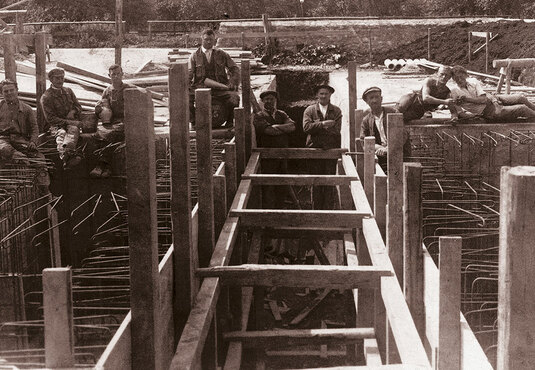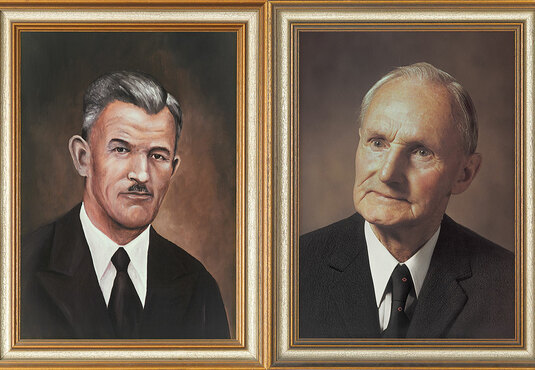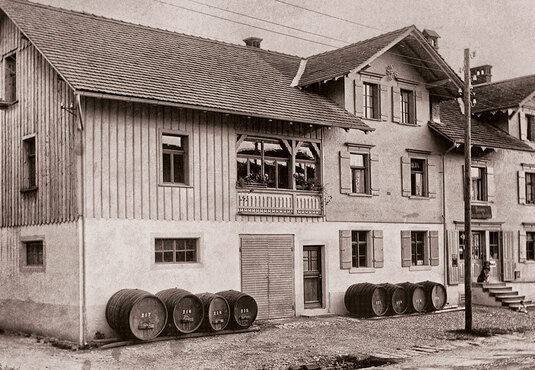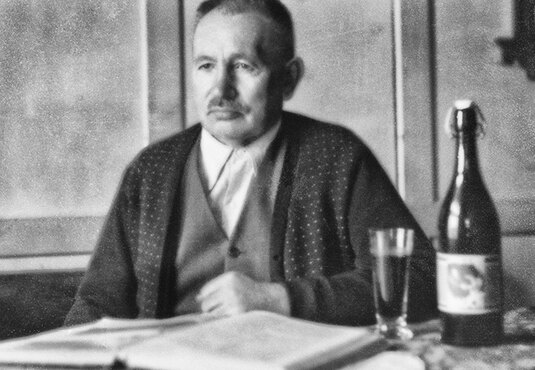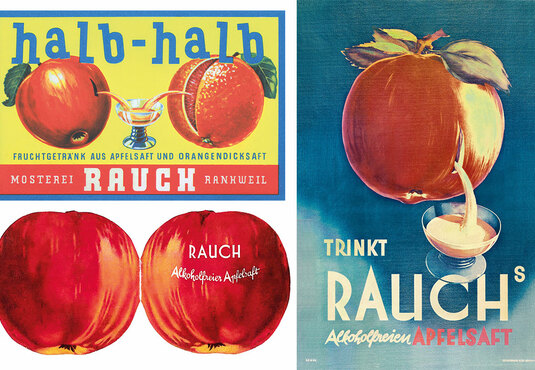
Juice for military hospitals
The apple juice boom kept the small business in Rankweil on its feet even in the politically stormy years before and during World War II. Step by step the Rauch family continued to invest in industrial processes: filling machine, washing and brushing machine, pasteurisation plant ... even after the annexation to the German Reich in 1938.
Apple juice was important for military and civilian hospitals, mothers and children. All manufacturers were therefore directly subordinated to the central offices in Berlin. As long as one delivered quality, this brought advantages: Ernst had been drafted into the Wehrmacht in 1939, and in the autumn of 1940 he was back home again because he was important to the company. The local, often fanatical Nazis had no access to the company. And they had enough raw materials allocated. However, Berlin also dictated what was to be produced. Rauch had to collect pomace from the region, dry it and deliver it to pectin factories in Germany.
As more and more employees were ordered to do military service, Rauch was assigned foreign workers, as were most "war-critical" companies. "They were Greeks", remembers Erich Rauch, 9 years old at the time: "We took good care of them, e.g. we set up their own kitchen". So the Rauch cider mill came through the war years well and with decency.
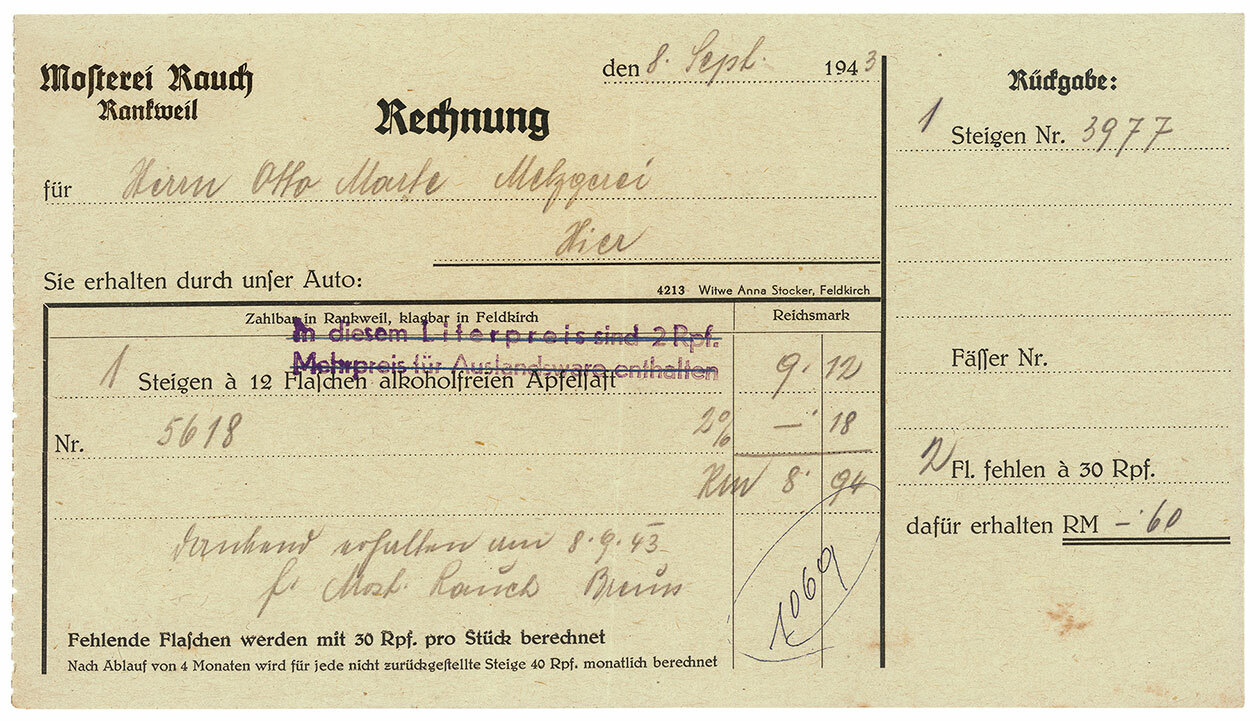
Delivery note: In difficult times even small things counted: Rauch charged 30 Reichspfennige to the Rankweiler butcher Marte for a missing bottle in 1943.
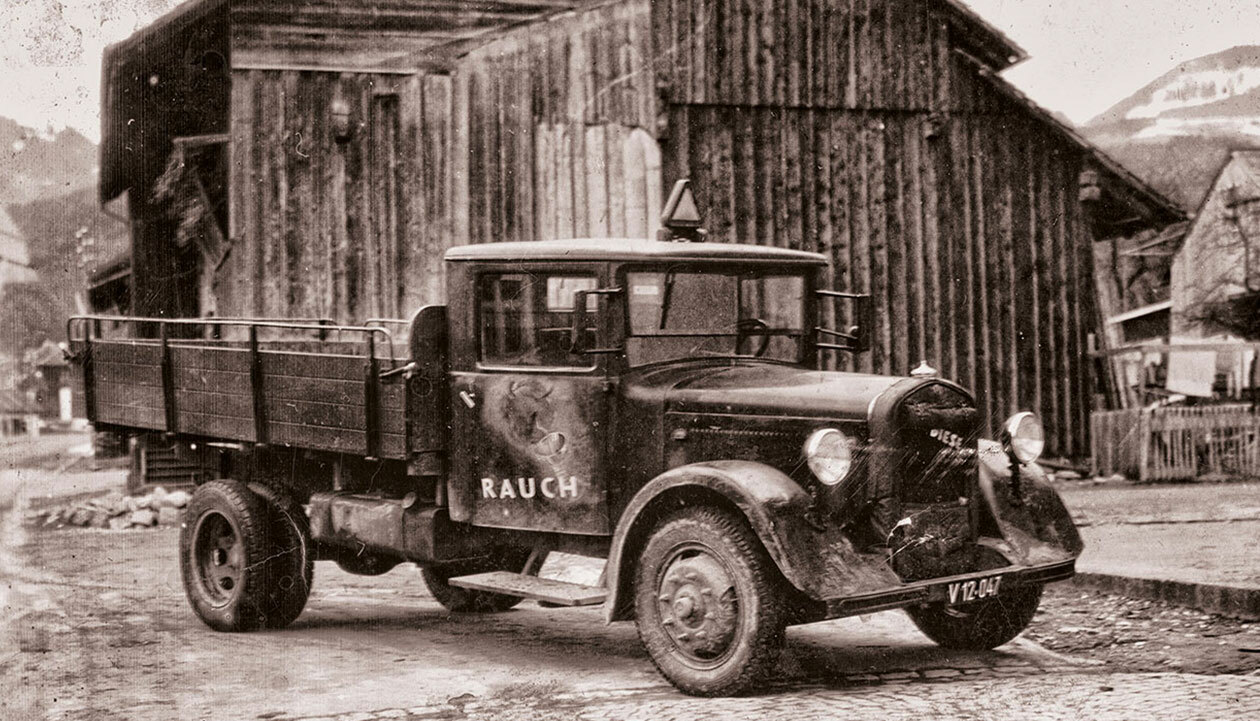
Truck: The French occupiers confiscated all vehicles even at Rauch, except for a small Fiat.
